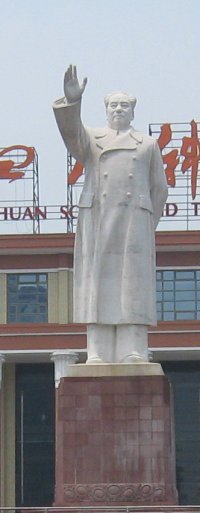The China game and open source


I have given that some thought. Probably because I have friends there.
Having friends there changes your perspective. It removes abstraction, makes things concrete.
There is really only one thing I know for certain about China and its government. That is, it's complicated.
There are lots of moving parts. There are tensions between the highly-industrial coast and the less-developed interior. There are tensions between the forces of order and capitalism.
There is also one inescapable economic fact underlying all of this. China is on a collision course with a hard reality we have only begun to face ourselves. That is, a need for balance.
In our case, it's a balance between debt and the ability to pay. In their case, it's a more basic balance between consumption and production.
While we've been building a debt mountain China has been building an unsustainable surplus. It must slow its total growth, and turn inward, in order to maintain stability.
We accomplished this through the 20th century. In the 1890s we were much like China is now, a fast-growing industrial powerhouse that was resisting calls from our people to share the wealth.
It took two wars and a Depression before we got the message. Today's complex, high-tech, middle-class society is a monument to our success, a model that has spread throughout the industrial world.
China, in other words, is still stuck on 1898. Its challenge is to get from its industrial present to a post-industrial future without collapsing.
In this struggle the Web is our great weapon. Because the Web is not just computers and text and applications. It's not Google.
(To the right, Sir Tim Berners-Lee, whose graduate paper became the architecture of today's Web.)
China's does not adapt well. Many of its researchers and businesspeople feel as free as their American counterparts, but they're not. And they're reminded of this every day, with every 404 error, of how opaque their society is.
Chinese people accept this opacity as the price of stability. But the price is high, and it's borne by everyone, whether they are even aware of it or not.
Rather than confronting China about this, or lecturing them, I think it's most important right now that we set a good example for them. That's not easy. We have our own problems. Our society is both complex and polarized.
But the best way we can help China through its troubles is to be more transparent about our own, to work harder at getting along among ourselves, and to demonstrate that change, while slow and difficult, is worth the pain.
Open source is a great example of this. Chinese businesses see software as an input. Open source makes clear it's more than an input. It's a process. Sharing the development load makes solutions easier to implement. Companies and individuals must cooperate in open source to make progress.
Open source is, of course, a product of the Internet, but also of the academic models and scientific methods which built the Web. Open access to all the Internet, the open availability of all knowledge, is something scientists and academics take for granted. Collaboration is in their DNA.
This is what we can offer China. It's a gift, albeit a loaded one, because there is a certain amount of chaos within it, chaos Chinese fear the way Germans do inflation, the way Japanese do radiation, the way we do communism or fascism or Islamofascism. Inside that mirror of the screen there are no secrets, and that's scary, still.
But that's the light China is moving slowly toward, and if they have a friend on that journey, a competitive and true friend who will speak truth to power, they have a better chance of getting through it.